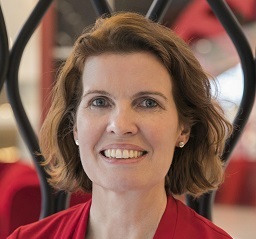Aisling Aherne RNutr FIFST CSci
- Please provide your name and current role?
Dr Aisling Aherne, Nutrition Manager for Kerry Group - Europe.
- Briefly share your professional background
I hold a BSc Hons in Nutrition and a PhD in Nutritional Biochemistry from University College Cork (UCC) in Ireland and have over 20 years of experience working in nutrition including scientific research, clinical nutrition, nutrition science communication and education, and nutrition regulations. I am very engaged with external stakeholders and am Chair of the Food Drink Ireland Public Affairs Group, as well as Nutritionists in Industry. I am also a committee member of the FDF UK Nutrition group, FDF UK Diet and Health group, and FDE Nutrition and Health group. I am a Fellow of the Institute of Food Science and Technology (IFST) and Chartered Scientist.
- Can you walk me through a typical day in your role as a nutritionist in the food industry?
No two days are the same! I work with our Research and Development (R&D) and chef teams to develop tasty nutritionally optimised products, and to keep colleagues up-to-date on relevant nutrition regulations and policies. I liaise with our marketing teams on relevant nutrition messaging for our customers. I support our customers in many ways, such as developing nutrition targets/strategies, simplifying nutrition legislation/policies for their relevant markets, using our Kerry nutrition tools to identify reformulation/New Product Development (NPD) opportunities. I work closely with external stakeholders such as food/nutrition-related trade associations and professional organisations. October is a busy month for me because I give menopause presentations and workshops to Kerry employees and customers.
- Can you describe a recent project or initiative you worked on that involved applying your nutrition expertise to improve food products or processes?
We worked with a customer on nutritionally optimising a few products to move them from High Fat, Sugar or Salt (HFSS) to non-HFSS. At Kerry, we developed two nutrition tools for internal use but also for our customers. The first tool is the Kerry NutriMap, which provides information on salt/sugar taxes/ legislation /reduction polices across UK and European countries. The NutriMap also gives information on forthcoming legislation, where appropriate, as well as country’s nutrition profiles. We are working hard to expand it into a global tool, and this should be accomplished by the end of 2024. So, with our customer we looked at nutrition legislation and polices that are in place in the UK. We then started to use our second tool, namely the KerryNutriGuide, where the nutritional information of a product is inputted, and how the product looks on several Front of Pack Nutrition Label (FOPNL) systems, as well as HFSS scoring and permissible EU nutritional claims. Our Kerry R&D team then used Kerry ingredients to keep the taste while nutritionally optimising the product(s) on the KerryNutriGuide, and our customers saw the improvements and how we obtained non-HFSS scores.
- How do you balance the need for both nutritional value and taste appeal when developing or reformulating food products?
That’s simple! At Kerry we never produce nutritionally optimised products that do not taste good, because taste is the number one decision factor for consumers to re-purchase and consume again. When nutritionally optimising products, our R&D, Applications, and Chef teams always take taste into consideration.
- What advice would you give to someone aspiring to become a nutritionist in the food industry and become involved in professional organisations like the IFST?
I would say to go for it! Being a nutritionist in industry is where you can make a difference to the food and beverages that are on the market. We can encourage food/beverage manufacturers, suppliers and providers to offer more nutritious tasty products. Having the support from professional organisations, such as IFST, is highly valuable not only to obtain support but also to network and get to know others in the profession, which helps me learn from my peers. I would encourage people to join committees/Special Interest Groups within professional organisations, because this helps to increase engagement and knowledge sharing.
- Do you have any tips for members just starting in their careers? (Nutritionists looking to diversify into different roles within the sector)
My advice would be to engage with different trade associations and professional organisations. Focus on building your network, and learn as much as possible from those who are at different stages of their careers. Continual professional development is very important for building careers and CVs (Curriculum vitae). Always look for opportunities, internally and externally, where you can learn and/or build new skills.
